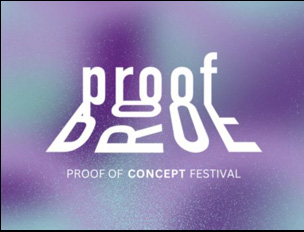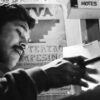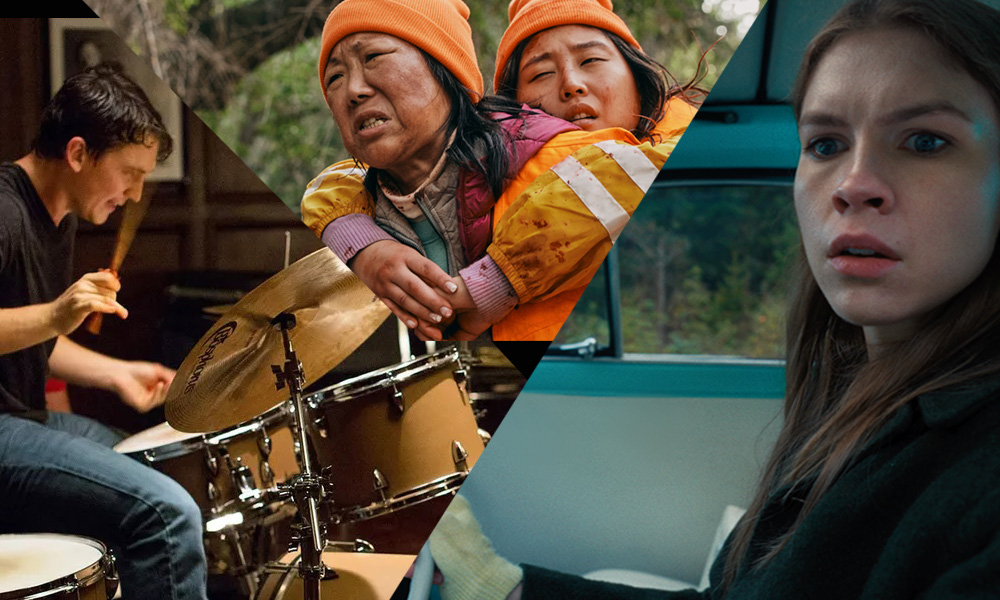Imani Davis thought a lot about what it took to stand out when conceiving of the Proof Film Festival, first when considering the thousands of short films that get made on an annual basis in hopes of acting as a calling card for its crew to get the attention needed to work on larger scale projects and then the hundreds of festivals that are now built around the form where being programmed into blocks, the films can feel as if they’re tossed into the sea without much context. A programmer for the American Cinematheque in Los Angeles, she was all too aware that in a city filled with studios and aspiring filmmakers, the gap between them can feel hopelessly wide and she even thought about how the event could stand out amongst the Cinematheque’s showcases, going outside of the nonprofit’s usual venues of the Aero, the Egyptian and the Los Feliz to book the Culver Theater where the lobby of the former Arclight in Culver City was meant for mingling.
“We really wanted a festival vibe,” Davis said of the event which took its name from how shorts are often referenced as a proof of concept, and having her own from a successful launch last year, she could see the foundation for something even stronger. “The Culver Theater has a bar, and there’s multiple spaces you can go and they have a really nice space in the back where you can have panels and receptions. It’s a very flexible space and allows for gathering a little more easily than some of our typical theaters, and Culver City is just such a great industry hub. There’s Amazon Studios right there and Apple’s very close. Sony’s right there. We love it there. I definitely want Proof to have its home there. It’s just such a great vibe.”
That level of thought seems to have gone into every aspect of Proof, which was an immediate hit last fall when from its title on, it was unambiguous about the end goal even amongst the majority of festivals that have networking in mind. At Proof, panels were dedicated to nuts and bolts talks about getting a feature off the ground, from casting in the indie space and finding champions in agents and managers, and screenings offering a chance for headhunters to discover filmmakers who were ready to take the next step with their films without having to drive very far or spend too much time attempting to corral the most promising when they were all in one place. It also was simply a lot of fun when the programming was so specifically aimed at making an immediate impression, welcoming film fans who just wanted to check out some good movies.
There will be plenty of those on hand when the second year of Proof starts its weekend takeover of the Culver Theater this Friday, featuring a few favorites of ours from the festival circuit such as Zao Wang’s “A Family Guide to Hunting” and Liz Sargent’s “Take Me Home” while boasting a fair share of west coast premieres and even a few world premieres of its own. A 10th anniversary screening of “Whiplash” and a feature version of Freddy Macdonald’s “Sew Torn,” fresh off its debut at SXSW, are in the lineup to show how a short can make the leap to a feature against all odds, buffered by an additional panel devoted to Sean Wang’s “Didi,” and while practical advice will be flowing throughout the weekend with talks about navigating labs, fellowships and incubators, producing and Hollywood in general at this present moment, so too will cocktails at various social hours intended to allow filmmakers and people with greenligiht power to make meaningful connections. Before all the excitement can get underway, Davis graciously took a moment away from preparations to talk about what the takeaways were from the first year of Proof, creating context around what plays and getting greater buy in from the industry.
 Now that you actually have a proof of concept for the festival itself, what was it like to think about year two?
Now that you actually have a proof of concept for the festival itself, what was it like to think about year two?
We were really happy with how things went during the first year. It was definitely a tricky time we were navigating with the tail end of the writer’s strike, and then the actor’s strike still happening, but with the attendance and the filmmaker experience during the first year, people were really happy and felt connected. There was like a good sense of community at the festival and we were happy about how everything just flowed, so for this year, we were focused on how can we amplify the film industry involvement because we didn’t have too much flexibility the first year.
We’re partnering with this platform called Calo that’s setting up the filmmakers on these curated meetings during the festival where they get matched with like potential industry partners, people that might be a good fit for their project. Each project will have one to two meetings during that time and we’re inviting even more industry folks to come and see the projects and get some filmmakers on their radar.
What seems really innovative about the festival is how it combines the networking and screening experience that are generally part of a festival, but stay separate. What’s it been like to develop that?
When we started it, we definitely wanted some things that might be unique to us. just keeping in mind how can we make this kind of the best experience for the filmmakers and for a film industry person when they’re being presented with projects that they could potentially collaborate on? Short blocks [are generally] only an hour and we do that purposefully to avoid burnout. Then after each film plays, not only do the filmmakers play their film, but they also have what we call a statement of intent video, a little 90-second video of them saying, “Hey, I’m the writer/director, here’s my plan for the next phase of the project” after each film. Of course, they can say it in the room too, but we wanted to give context for each project and allow the filmmaker to run with that and have everyone see, “Wow, this is their project. This is where they’re at and what they want to do next,” and it allows for even more fruitful conversations after the screening.
What was it like to create a lineup this year?
I was nervous about that because I love our films from last year so much, and [I thought] how is it going to get any better? Are we going to find films we’re just as excited about? And we love the films this year just as much. Submissions went up this year. We were like close to 500 last year and we were over this year, and then we chose 46, so it’s a little less than 10% acceptance rate and it makes it difficult deciding which ones, because there’s so much great talent out there. There were definitely some that we were on the edge about this year and it was just as exciting as as last year, coming up with a new slate of things to show the world.
You’ve got some great panels as well. How did ideas for those come about?
Last year, it was a blend of different community partners and different panel ideas that we could do together. But we put on our survey last year [a question about] what are the topics coming up for emerging filmmakers And we went from there for this year. We keep an eye and ear close to what’s the industry like right now [too] to come up with topics that feel super timely and helpful, so you can walk away with something tangible. We’re really excited about the producers panel of people who have worked with first-time filmmakers and what that process of championing them is like because that’s the hardest to fight for. It’s so hard to make that jump, and it’s [considered] a “risk,” so hopefully those producers can provide some actionable advice for producing those kinds of films in this landscape.
We also have the short-to-feature panel where we have a bunch of people who have taken this path. We did that last year and we have a whole new group of people this year. And our agents and managers panel was super popular, so we [thought], “Let’s do that again, because it feels like people can always get something new from agents and managers talking about representation. And the last panel we added is a talk about “Whiplash,” [which is] a poster child for what we what we like to preach during Proof. That journey is incredible, going from a Sundance award-winning short to Oscar-nominated film and we have Couper Samuelson, one of the producers talking about it and then we’ll do a 10th anniversary screening of the film, so we’re super excited about that.
You also have the L.A. premiere of the feature “Sew Torn,” which has to actually be a pretty competitive slot in your lineup as a case study. What’s it like to pick a film for that short-to-feature journey?
Yeah, I actually I keep an eye out for things that have started as like a short and then went on to a feature or series. I saw “Sew Torn” at South by Southwest and during the Q&A, I heard about their journey with taking from a short, which was acquired by Searchlight Pictures into the feature that they made independently and I love the feature film so much. I went online and saw the short and [thought] this is a great success story. We’d love to showcase this and we’d love to keep up that [tradition of] which new film is coming out this year this year that took this journey that we can show to the filmmakers [we have on hand] as a case study, so it’s very organic, but we want to we want to find more.
I imagine that in a year or two, you’re going to show one and the feature is going to be there.
Yes, that is the goal.
The Proof Film Festival will unfold at the Culver Theater in Los Angeles beginning October 18th through 20th. All events and panels can be seen here.



